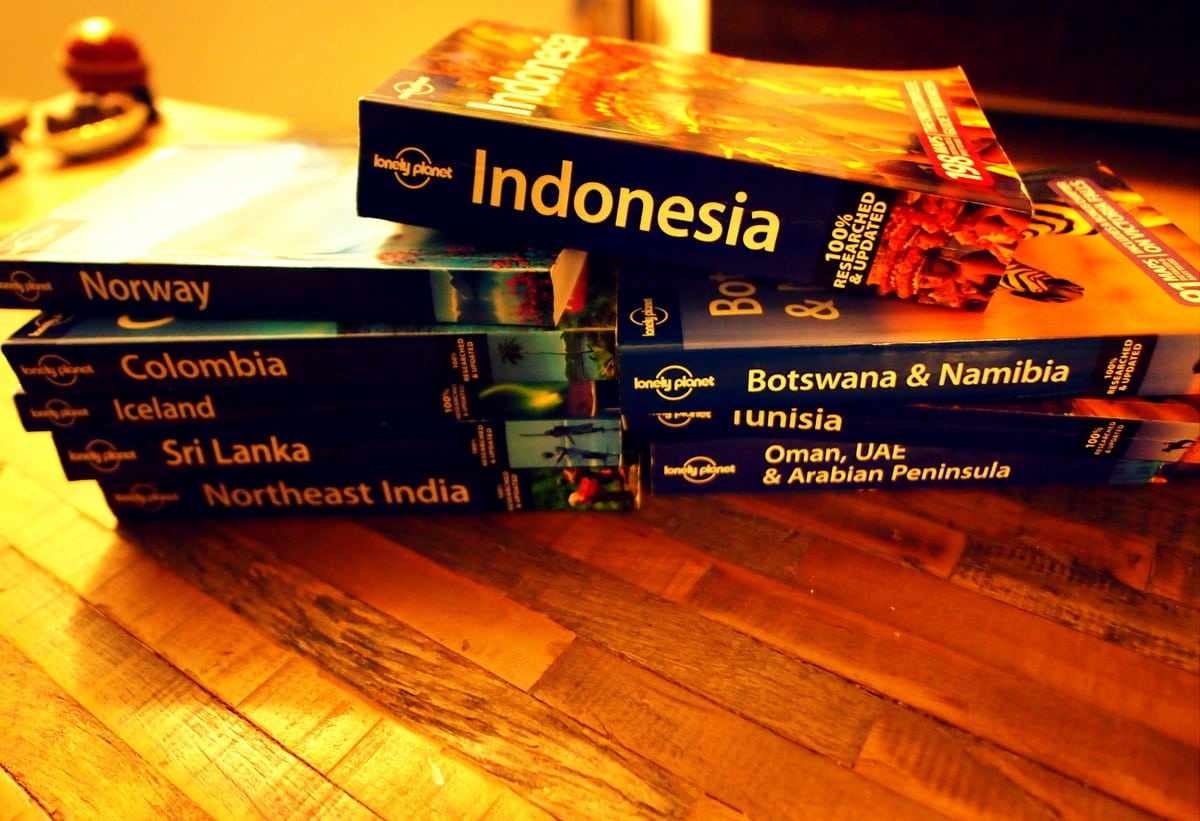Skift Take
This sale is a headscratcher, but BBC was keen on finding a buyer and looks like Kelley is the most price-elastic buyer it could find. Remains to be seen how the travel market and LP's shrinking-but-loyal userbase responds to this sale.
UPDATE: BBC Worldwide confirms the sale to Lonely Planet
EXCLUSIVE: Lonely Planet, the storied travel guidebooks publisher owned by BBC, is about to be sold, we have learned. And the buyer is a doozy: reclusive Kentucky billionaire Brad Kelley, who spent the 1990s selling discount cigarette brands like USA Gold, Bull Durham, and Malibu, then sold the company for almost $1 billion in 2001, and parlayed that money into becoming the one of the largest land owners and conservationists in United States.
The deal is in final stages of negotiation, and barring any big red flags that come up the last second it should be announced next week.
The deal terms, according to our sources: Kelley will buy a majority controlling stake in Lonely Planet, and BBC Worldwide, the commercial arm of BBC which bought LP, will retain a small-but-sizable stake to help maintain editorial control through current management, as well as save on inter-country taxes.
The sale price is apparently higher than what BBC currently values LP at — that is why it is selling the majority stake, of course, no one else will pay that much — but still way below what BBC originally paid for it, which was a total of $210 million spread over roughly four years starting in 2007. In July 2012, BBC Worldwide did a second write down and valued it at $135 million. The value may be even lower now based on flagging book sales numbers. With a majority stake, the price Kelley is paying will likely be close to $100 million, but the exact number will likely to be revealed in BBC’s annual review statements that usually come out after March.
Updated: BBC Worldwide’s official statement: “We have been exploring strategic options for Lonely Planet for some time now but no deal has been done and we are not going to comment on speculation about its future.”
Kelley’s motivations
 Photo of Kelley, from WSJ video screenshot.
Photo of Kelley, from WSJ video screenshot.
According to friends of Kelley we have spoken to, any acquisitions he makes are always well thought out: He’s incredibly thorough, doesn’t overpay, doesn’t do vanity buys, and looks at them long term. Sources say Kelley — whose primary residence is now in Boca Grande, FL — is more likely the second or third largest landowner in U.S., not fourth as WSJ reported in a rare story on him last year (video from story embedded below), as he downplays his holdings and a lot of his deals to buy land never surface in media.
What Kelley and his team plans to do with Lonely Planet is confounding insiders — including the irony that a historically environmentally forward-thinking brand like LP will now be owned by someone who made a fortune with cigarettes and now is a land-buying environmental conservationist.
With LP, Kelley’s team is likely thinking of the long-term value of the brand and investing in digital — especially video — and possibly going into offline retails channels and using it as a environmental conservation platform.
Kelley is an investor in a small travel startup called OutwildTV, a website using video to document the adventures of travel journalists. It is unclear what role OutWild, or its founder/principal Daniel Houghton and other principal Michael Rosenblum will have after in the new Lonely Planet under Kelley’s control, but Houghton and Rosenblum have been Kelley’s point men on all discussions with the BBC up to this point.
Considering how guarded Kelley is — he doesn’t have a public email, has hardly ever been photographed — it is likely OutWild principals may serve as the point people for his LP stake.
The tortured history of Lonely Planet under BBC
This sale finally comes after BBC has sat on a LP sale decision for a few years now, going back and forth on their thinking of what to do with the brand that it bought at an inflated valuation in 2007.
Having bought 75% of Lonely Planet at the height of the bubble in 2007 for $143 million, and the rest in February of 2011 for an additional $67 million, BBC has gone though various bouts of buyer’s remorse over the years, but has not acted on it beyond writing down the value of its investment twice. The BBC most recently valued LP at about $135 million, down $78 million since it bought it. About a quarter of LP’s revenues now come from digital — which includes its various mobile apps as well — and that’s where it sees the future for the iconic travel brand.
BBC’s thinking on the future of Lonely Planet has likely changed over the 2012 calendar year, in part spurred by its rethink on the future of its commercial efforts and the limits it has on exploiting a complementary Lonely Planet brand and BBC Travel in the UK. And there’s also the disappointing reminder of how little its competitor — and superior in the U.S. — Frommer’s went for in its sale earlier this year to Google.
This will also mean that Lonely Planet will finally make an exit from Australia, its historical base of operations, and move to United States wholesale, though there may well be an interim base in London, leveraging BBC, to ease in transition.
Key milestones:
- Tony and Maureen Wheeler found Lonely Planet in 1973
- BBC Worldwide acquired a 75% stake in Lonely Planet in 2007 for £88.1m.
- BBC upped investment to £130.2m in February 2011 when the Wheelers exercised an option to sell their remaining stake.
- BBC wrote down investment to £85m in July 2012.
- The Guardian says: “The commercial arm of the BBC also revealed that it has been forced to take a £16.1m ‘charge to the income statement’ in the year to the end of March, leaving the goodwill value of Lonely Planet at just £22.6m on its books.”
More on Lonely Planet:
- Lonely Planet and the rapid decline of the printed guidebook
- How Lonely Planet is winning the battle on social media
» Get your daily dose of Skift: subscribe to our newsletter, RSS, Twitter or Facebook.
The Daily Newsletter
Our daily coverage of the global travel industry. Written by editors and analysts from across Skift’s brands.
Have a confidential tip for Skift? Get in touch
Tags: bbc, lonely planet
